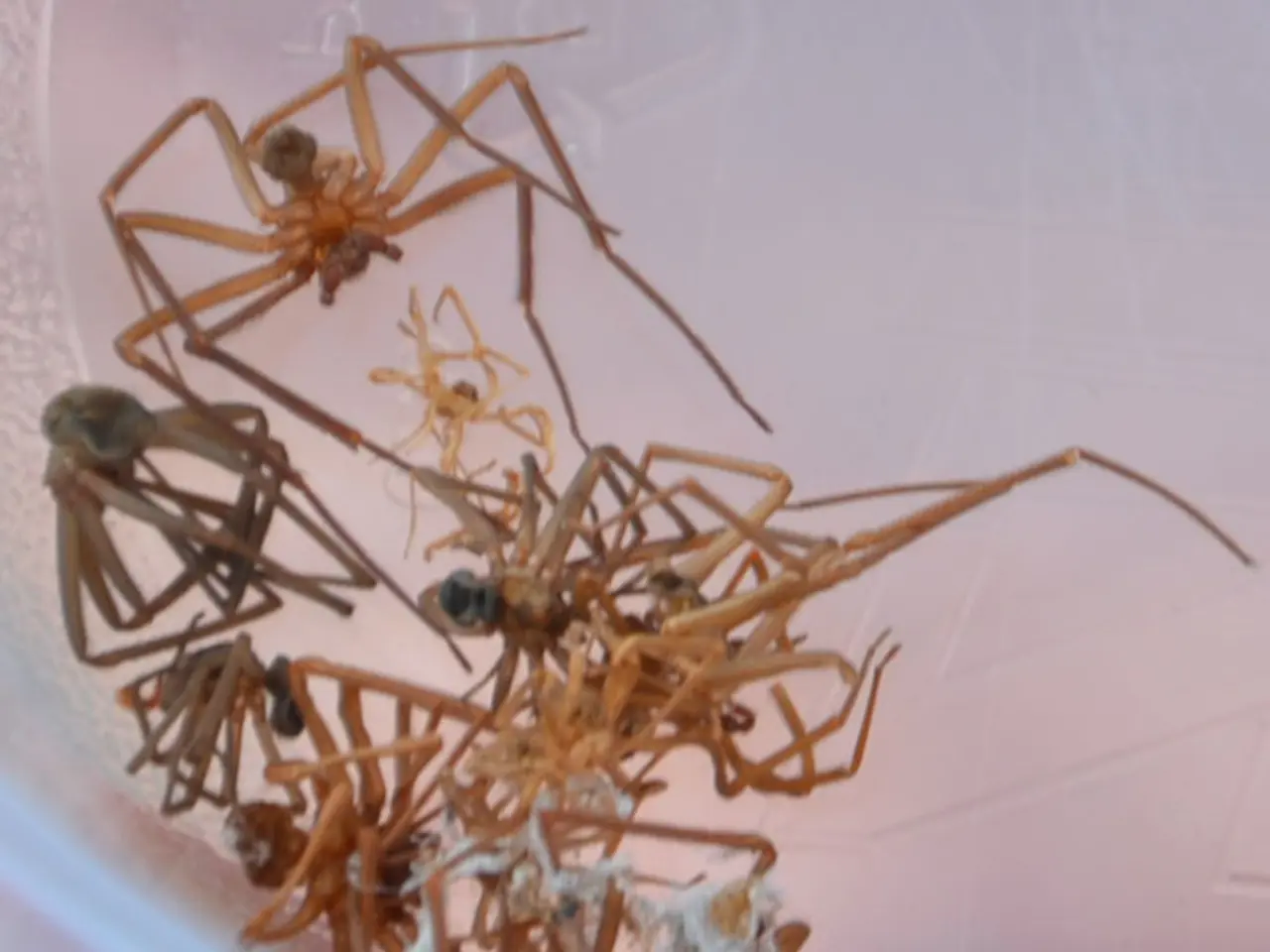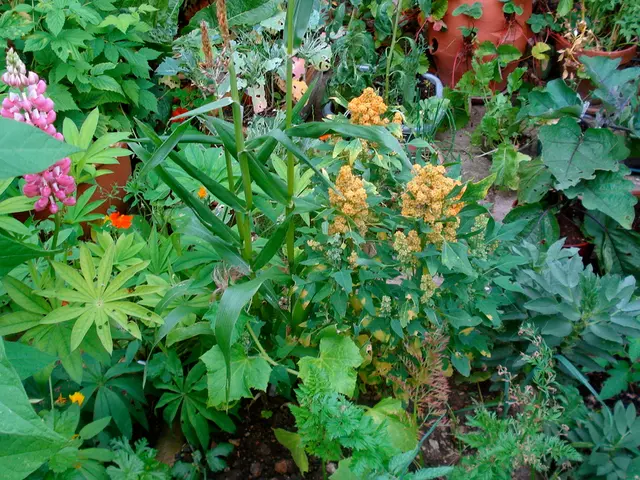Avoiding the squashing of spiders in your household is recommended by pest control experts, due to their crucial role in controlling other pests.
In the fight against unwanted spider guests in our homes, experts advise against squashing spiders as it may lead to increased pest problems. Nicole Carpenter, President of Black Pest Prevention, explains that killing a spider can actually exacerbate the issue.
Squashing a spider can leave behind stains and unpleasant odors on walls or ceilings. Moreover, spiders are beneficial creatures as they feed on other pests, acting as an alternative method of pest control. However, not all spiders are harmless, and some dangerous and venomous species may be present in the home.
To effectively and safely manage a spider infestation, the best approach involves humane removal, prevention, and natural repellents. The catch and release method, where spiders are gently trapped using a clear container and released outside, is a safe and humane way to remove them.
Using natural repellents, such as peppermint oil, is another effective non-toxic spider deterrent. Mix a few drops of peppermint oil with water in a spray bottle and apply it around corners, windows, doors, and other spider entry points. This not only repels spiders but also freshens your home.
Prevention and home maintenance are crucial in keeping spiders at bay. Seal cracks around doors, windows, and foundations to block spider entry. Keep your home clean and free of clutter, regularly sweep, dust, and vacuum to disrupt webs and egg sacs. Limit outdoor lighting or switch to yellow sodium vapor lights to reduce insects that attract spiders. Store items in air-tight containers, especially in garages and basements, to eliminate spider harborage.
If you must kill spiders, the most humane way is to trap them in a sealed container and freeze overnight to mimic winter dormancy, followed by adding rubbing alcohol to ensure they do not revive. This minimizes suffering compared to squashing or spraying chemicals.
It's important to identify the type of house spider before attempting to remove them. Experts advise calling local pest control services for identification. To keep spiders at bay, mix a few drops of peppermint essential oil with water and spray in corners, cracks, and trouble areas.
Ed Dolshun, Tech Director of CatchMaster, suggests the catch and release method or using glue boards instead of squashing spiders. Kris Bagnara, certified entomologist at All 'U' Need Pest Control, warns about the presence of dangerous spider species in homes. Jason Napolski, CEO and President of A-tex Pest Management, states that squashing a spider can trigger allergic reactions and attract other pests.
It's essential to remember that some spider species eat other spiders, including venomous ones like brown recluses. Squashing a female spider may release dozens of baby spiders, potentially creating an infestation. Killing a spider can spread pheromones that attract more scavengers.
In conclusion, adopting a humane approach to spider control not only prioritises safety and humane treatment but also promotes long-term prevention. By employing the catch and release method, using natural repellents, maintaining a clean home, and calling local pest control services for identification, we can keep our homes spider-free without resorting to squashing or harsh chemicals.
An additional benefit of using essential oils is that they can also be added to homemade cleaning products to help deodorize surfaces. Horbäach Peppermint Essential Oil is a paraben-free oil that provides a fresh scent and is available on Amazon.
Instead of using harsh chemicals or squashing spiders, consider employing natural repellents such as peppermint oil to keep your home health-and-wellness focused and free of pests. Prevention and lifestyle measures like maintenance, cleanliness, and sealing home entries can also support a garden-and-home environment that discourages spiders.




